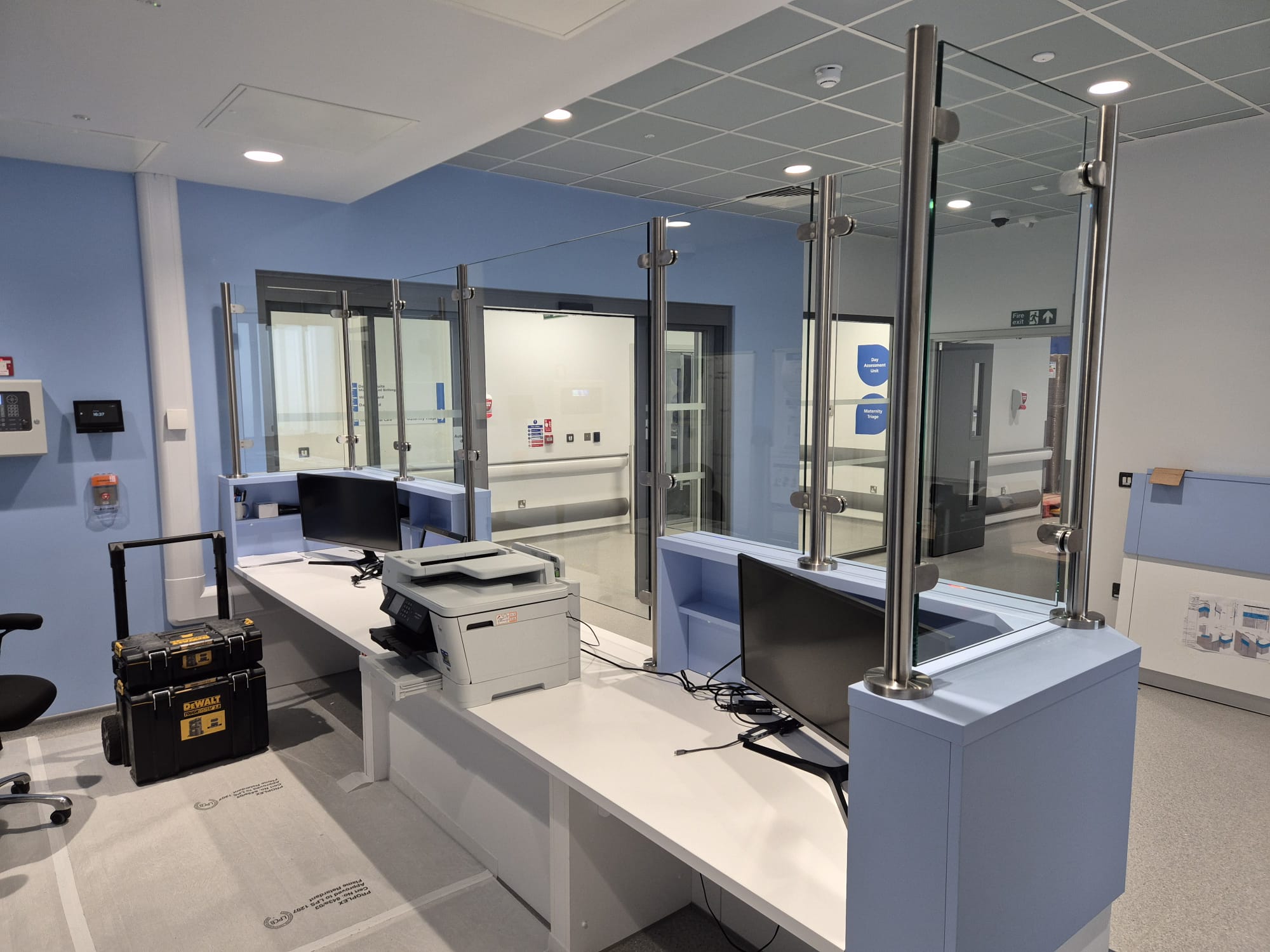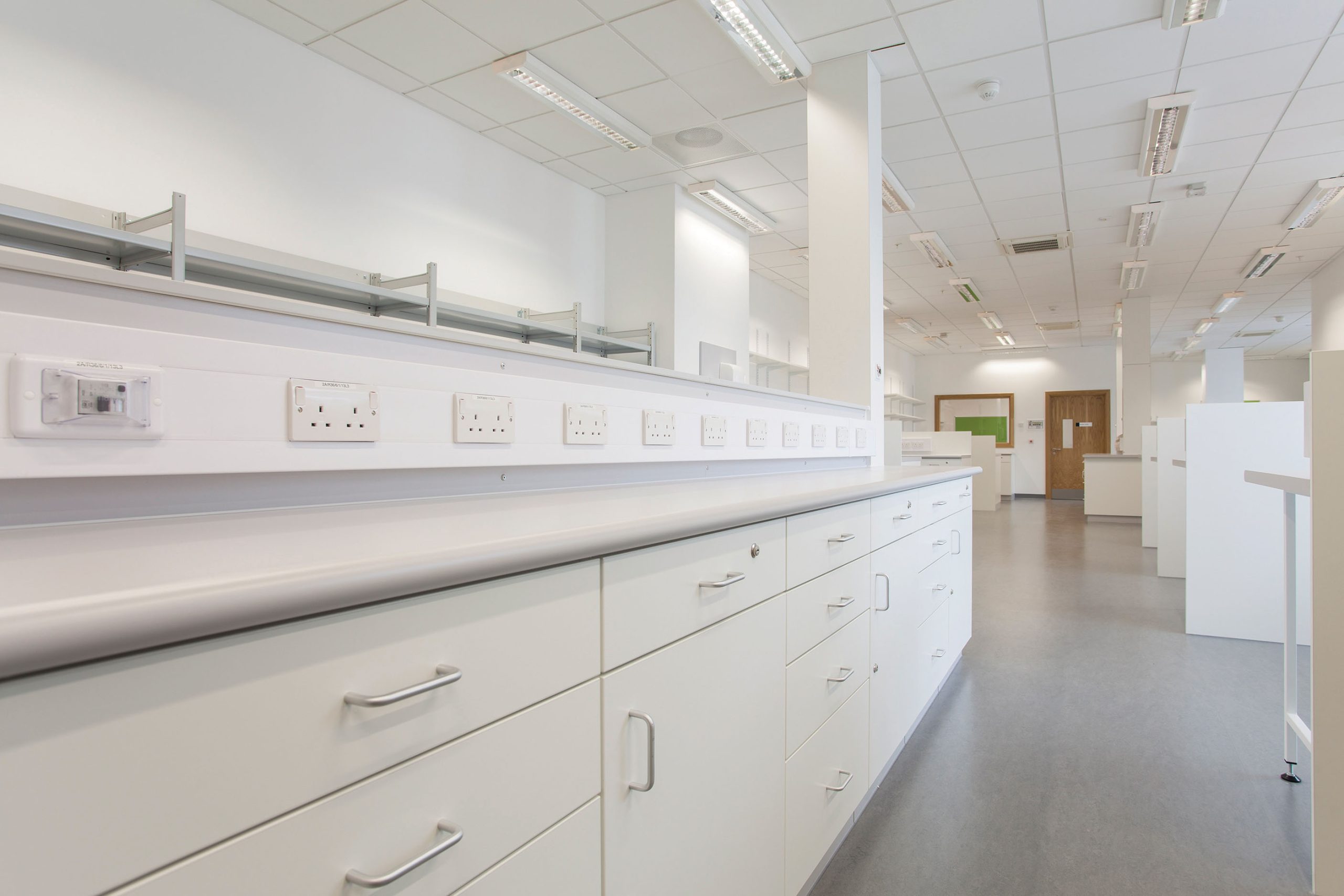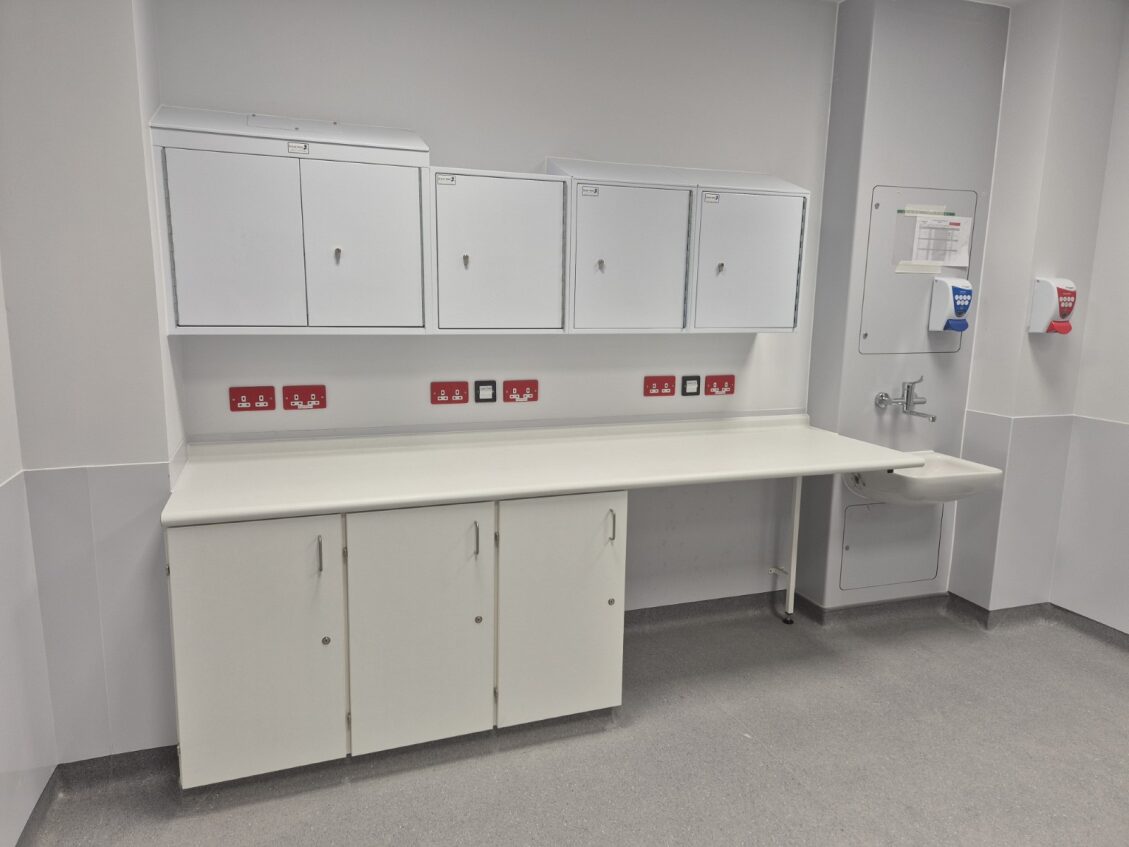The safety of NHS staff has become one of the most pressing challenges facing healthcare…

Architects – healthcare fitted furniture and what it says on the tin
Healthcare facilities present unique challenges for architects. Unlike other types of buildings, they demand a critical balance of hygiene, infection control, durability and longevity, as well as accessibility, inclusivity, functionality and efficiency. Not to forget patient comfort and well-being and strict regulatory compliance – which all adds up to a potential minefield writes Tony Huggins, managing director, David Bailey Furniture.
Collaboration is essential in this type of intricate landscape – recognising that it is architects who provide the overarching vision, but it also involves close partnerships with expert suppliers, if those ideas are to become a reality. Therefore, it is crucial that architects are working with companies that really can deliver what it says on the tin.
Such collaboration comes into its own when it looks at the detailed elements that define healthcare spaces – such as fitted furniture, storage solutions and interior fittings. This is when architects need to work closely with partners who understand the nuances of this sector. It is specialist companies like David Bailey Furniture that bring a wealth of knowledge and experience by offering services that extend far beyond simply supplying products.
Healthcare facilities are unlike any other building type. They demand a delicate balance of hygiene and infection control, which means using materials and finishes that must be easy to clean and resistant to the spread of infection.
Durability, sustainability and longevity are also essential because healthcare environments are high-traffic, 24/7 operations, requiring robust and long-lasting solutions. In addition, well fitted furniture must be accessible and inclusive to patients of all ages and abilities, adhering to stringent regulations.
Designs must be able to optimise workflows for healthcare staff, ensuring efficient delivery of care, while at the same time creating a calming and healing environment, which is crucial for patient recovery and satisfaction. Adherence to complex healthcare-specific regulations and standards is also paramount.
Turning vision into reality
All this means that within this intricate landscape, the role of collaboration cannot be overstated. Engaging with manufacturers early in the design process allows for valuable input on material selection, product specifications and design optimisation.
Specialist manufacturers like David Bailey Furniture, possess in-depth knowledge of product capabilities, limitations and installation requirements. They can also provide technical drawings and other resources to aid in the design process.
Many manufacturers, like us, also offer bespoke solutions, via the NBS network, allowing architects to tailor designs to specific project needs and create unique, innovative spaces. Equally as important, manufacturers can help architects identify cost-effective solutions without compromising on quality or functionality. This is particularly important as healthcare environments demand specific materials that are durable, hygienic and easy to maintain.
Specialist manufacturers can also guide architects in selecting the right materials for each application. They are well-versed in healthcare-specific regulations and standards, ensuring that products meet all necessary requirements. Understanding the critical importance of infection control allows David Bailey Furniture to further provide solutions that minimise the risk of cross-contamination.
At David Bailey Furniture, we like to work closely with contractors and other trades to ensure seamless integration of our, products into the overall construction. This provides additional peace of mind for architects because experienced installation teams can ensure that products are installed correctly and efficiently, minimising disruption to the project schedule.
Furthermore, reputable manufacturers adhere to strict quality control processes, ensuring that products meet the highest standards of workmanship and also offer ongoing maintenance and support services to provide architects and their clients with peace of mind.
The importance of experience
In the healthcare sector, experience is invaluable. A manufacturer with a proven track record understands the long-term implications of design choices. They know how fitted furniture will perform under heavy use, how it will withstand rigorous cleaning protocols and how it will contribute to the overall patient experience over time.
For example, a company like ours with over 40 years of expertise in the healthcare market, has encountered and overcome a wide range of challenges during that time. This is experience which translates into a deep understanding of evolving healthcare needs and trends, together with the ability to anticipate potential problems and to offer proactive solutions if needed.
Ultimately, the goal of every healthcare project is to create an environment that promotes healing, supports staff and enhances the delivery of care. Architects play a pivotal role in shaping these environments and by collaborating with specialist manufacturers, they can ensure that every detail contributes to this goal.
All this means that by using the expertise of specialist partners, architects can streamline the design process, optimise outcomes and create healthcare spaces that truly make a difference. From the initial concept to the final installation, the right partners can help architects bring their vision to life, ensuring that the end result is not only aesthetically pleasing, but also functional, durable and conducive to the well-being of all who use the space – another good reason to deal only with companies that deliver exactly what it says on the tin.








